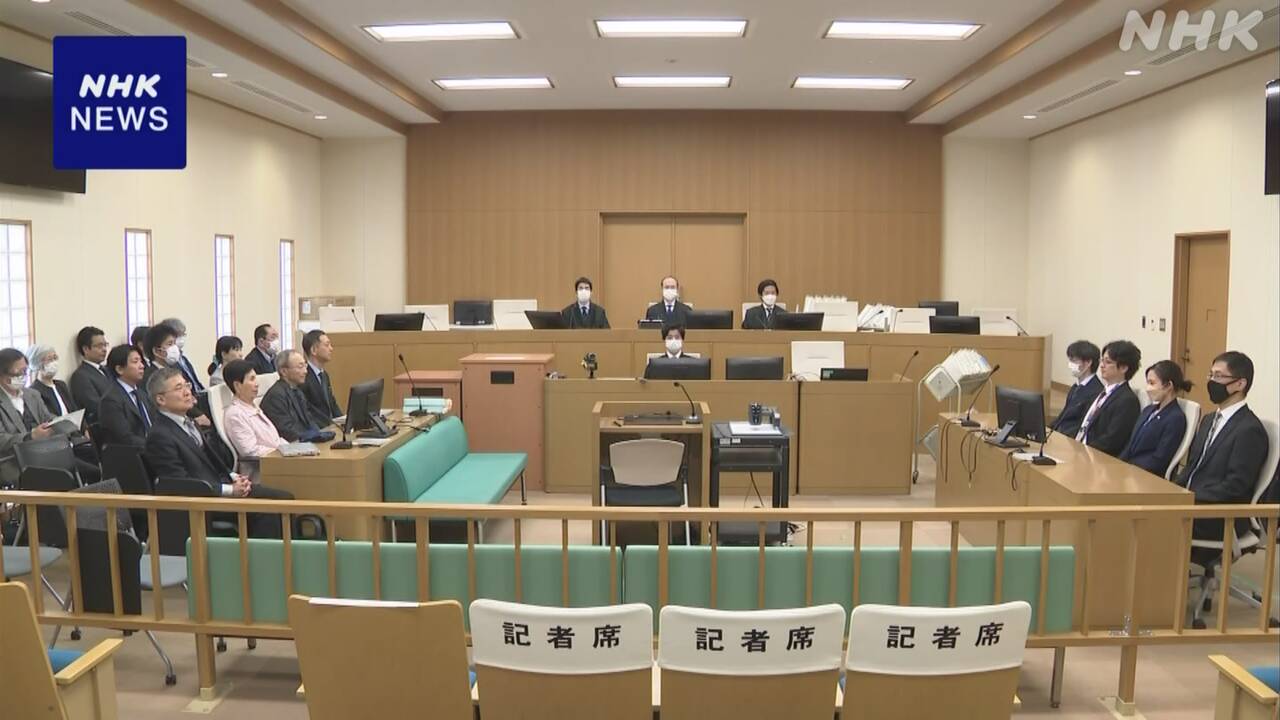The retrial of Iwao Hakamada, who was sentenced to death for the murder of a family of four in Shizuoka Prefecture 58 years ago, has reached its climax, with the issue of "5 items of clothing" at issue. Five experts from the prosecution and defense were questioned about the color of the bloodstains.
On the 27th, prosecutors' experts spoke at the retrial of Iwao Hakamada (88), who was sentenced to death for the murder of a family of four at a miso manufacturing company in what is now Shimizu Ward, Shizuoka City in 1966, 58 years ago. A cross-examination called ``cross-examination'' was held in which the two defendants and three defense experts were asked for their opinions.
At the retrial, the biggest question will be whether it is unnatural that the blood stains on the "5 items of clothing" found in a miso tank near the crime scene 1 year and 2 months after the incident occurred were unnatural. It's a point of contention.
In the courtroom of the Shizuoka District Court, five experts sat in front of the witness stand, and when the judge asked whether the bloodstains were red, Professor Yoshiro Kanda of Kurume University, who conducted the examination for the prosecution, replied, ``Miso.'' "Since we don't know the conditions inside the tank, we cannot rule out the possibility that redness remains. I find it strange that the defense expert declares that there is no redness left."
On the other hand, Professor Keiko Shimizu of Asahikawa Medical University, who conducted the appraisal for the defense, said, ``After blood leaves the body, if it is exposed to miso components, chemical changes will progress and it will turn black.'' "It is impossible to reproduce 100% of the conditions within, but it presents a conclusion that is probabilistically possible."
Hakamada's retrial is expected to conclude on May 22nd.
Former judge who made the decision to grant release appeals for law reform
On the 27th, a former judge who made the decision to allow Iwao Hakamada's release as presiding judge of the Shizuoka District Court 10 years ago took to the streets in front of the court to protest the law regarding retrials to prevent protracted trials. He argued that amendments were needed.
Iwao Hakamada (88), who was sentenced to death for the murder of a family of four in what is now Shimizu Ward, Shizuoka City in 1966, 58 years ago, was sentenced to death at the Shizuoka District Court on March 27, 2014, 10 years ago. The decision granted him a retrial and release.
However, the prosecutor's office appealed and the decision was reversed at the Tokyo High Court, so it took more than 40 years from the time they first requested a new trial until last year when a decision was made to start a new trial.
On the 27th, which marks 10 years since his release, the Japan Federation of Bar Associations, which aims to revise the law regarding retrials, held a street campaign in front of the Shizuoka District Court, where Mr. Hakamada's retrial is being held. Ta.
Hiroaki Murayama, a former judge who made the decision to approve Hakamada's retrial and release as presiding judge of the Shizuoka District Court 10 years ago, also attended the hearing, handing out bags containing pamphlets and other items to passers-by. He argued that the law needed to be amended to prevent this from becoming a long-term problem.
Murayama said, ``I never thought it would take this long for a retrial to be held, and I have to say that the current legal system is strange.''
Regarding Hakamada's retrial, he said, ``I hope that the trial will proceed properly and that a verdict will be reached as soon as possible.''

